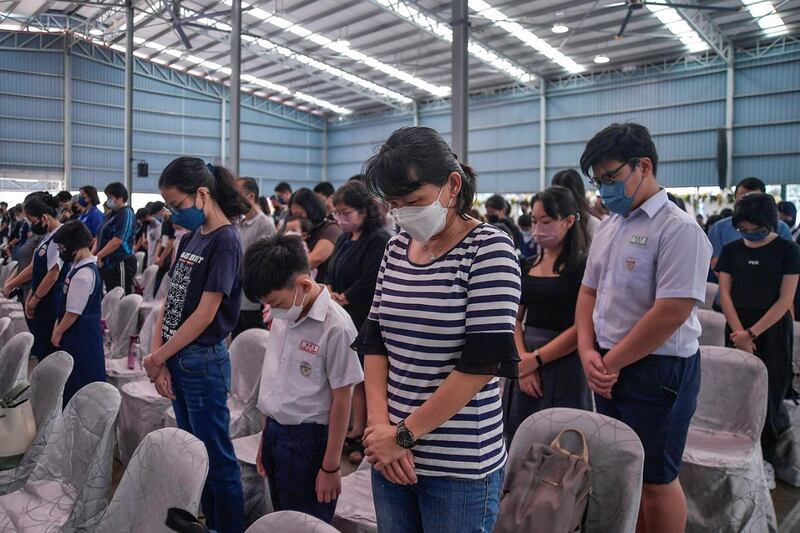A Malaysian government report made public on Wednesday appeared to exonerate nearby development and other human activity in a landslide at an unlicensed campsite outside Kuala Lumpur that killed 31 campers in December 2022.
The findings by the Natural Disaster Management Agency (NADMA), however, did not satisfy victims’ relatives and survivors of the disaster who BenarNews interviewed and who were still demanding accountability from the government.
Ninety-two people were sleeping at the campsite in Batang Kali, 30 miles (48 km) from Kuala Lumpur, when soil and debris from a road above tumbled onto it just hours before dawn on Dec. 16.
Thirteen children were among the dead. Search teams spent nearly a week rescuing or digging out 61 people who were found alive.
“The landslide was primarily caused by natural failure, potentially influenced by rainfall and geological factors,” said its 143-page report about the agency’s investigation into the landslide – the deadliest in the country’s history.
“Two significant factors that contribute to such events are rainfall and hydrogeology, which are related to the change in the underground water regime.”
NADMA’s report stated there were, in fact, two landslides that occurred about 20 minutes apart, with the first one resulting from high water saturation. The collapse zone spanned 120 meters (393 feet) in length and 14 meters (46 feet) in depth.
“There is no strong evidence to suggest that anthropogenic activities were a contributing factor to this landslide event,” the report said, using a word that refers to environmental change linked to human activity.
Loh Teng Shui, who lost his 7-year-old son in the landslide, said he was not convinced by the report’s findings.
“Based on the report, the landslide was attributed to high rainfall and excessive water. I assumed other areas received the same amount of rainfall, so why did it only affect that specific area?” he told BenarNews by phone.
“Our lives are definitely not easy now. It’s very tough for my wife and me. We will feel guilty for the rest of our lives as we lost our only son. There’s nothing that can replace him,” he said.

Others also pressed for accountability, arguing that the campsite lacked an operating permit from the government, an issue the technical report did not address.
“The government should be more detailed and specific, especially about the land ownership and how the land containing the campsite was meant for use,” Wong Wai Foong, 36, a survivor of the landslides, told BenarNews.
She said the land around the campsite “was meant for agriculture and definitely not for camping. And the ownership of the land involves multiple parties. Who was actually responsible for running the campsite?”
In Malaysia, an operator of recreational bivouac sites is required to obtain a temporary license.
Nga Kor Ming, the country’s minister for local government, said last year that the three affected campsites did not have an operating license and only had permission for an organic farm.
Noor Shahidah Nazer, a geologist at the National University of Malaysia, said the government deserved credit for releasing the report to the public.
“I have read it and can say that it is quite conclusive and explores many aspects,” she told BenarNews.
But, in her view, should not have dismissed the role of human activity contributing to the landslide.
“I personally feel that it is quite unbalanced to rule out human activities as the main cause as it is obvious that the landform, especially the toe part [baseline of the slope], was affected by human activities many years ago,” she said.
Nga, the local government minister, said his ministry was preparing safety guidelines for those who want to set up a campground, according to state news agency Bernama.
“The safety of the site by determining the appropriate distance from restricted areas, the topographical conditions, and so forth, are among the important aspects included in the guidelines,” he said.
